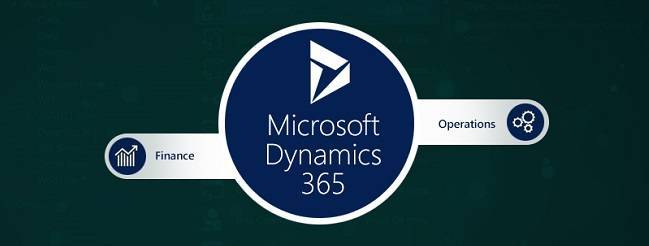Why the Latest Evolution of Dynamics 365 Is Great News for Business Users
Losing the siloed ERP and CRM brands is an extremely positive move for us as strategic Microsoft consultants - and most important, our customers.
We were given early notice that a rebrand of Microsoft Dynamics 365 for Operations and Dynamics 365 for Financials was imminent:
“We will be renaming Dynamics 365 for Operations and Dynamics 365 for Financials. We are changing the names of these business apps to better represent the breadth of financial and operations capabilities available in both apps, and to bring consistency to the naming approach across Dynamics 365. We’ll have more to share closer to the July 1 general availability date.”

Microsoft has since confirmed the new brand of Dynamics 365 for Finance and Operations Enterprise and Business editions, which is in line with its suite of other intelligent business applications known as Microsoft Dynamics 365 for Sales, Marketing, Field Service, Project Service Automation and other functions.
The news is the latest step in the evolution of the Microsoft business applications suite, which has seen a definitive move away from ‘traditional’ ERP and CRM silos (that those of us old enough to remember) will have known as Damgaard Axapta, Axapta, AX, Microsoft CRM and Dynamics CRM. And we know from our web search data that many of our customers do remember these brands and still classify business applications as either CRM or ERP.
As a leading Microsoft consultancy, it’s important to us that we share why this is very good news for our customers.
Our Reaction
The removal of the old, artificial ERP and CRM silos is very sensible. CRM and ERP as functional groupings don’t really exist anymore and the move to a suite of applications working both independently and together, is a market-focused approach. It means organisations no longer need to commit to a full ERP or CRM suite, but can instead choose the applications that they need to address a specific goal and manage a process like sales, customer service or project service automation.
The applications of course work seamlessly and Microsoft has also made these changes alongside the delivery of new purpose-built applications in the cloud. This allows organisations to receive updates to individual applications, rather than maintaining and managing an end-to-end suite. It’s an approach that makes the total cost of ownership lower, business applications more dynamic with quicker releases, and delivers faster end results for customers.
We think that should ease the blow of losing the Microsoft AX and Microsoft CRM brand names!
Our Approach
Losing the siloed ERP and CRM brands is an extremely positive move for us as strategic Microsoft consultants – and most important, our customers. Microsoft says that the integrated suite approach helps businesses to be more outcome-driven and we’d agree. We are certainly more focused in how we choose and leverage only the appropriate functionality for the best business result.
It also says that the integrated business applications give partners like Hitachi Solutions the ability to make the most of the common data platform to integrate legacy and third-party solutions with Dynamics 365.
Now that new brand has taken effect, we will be implementing Microsoft Dynamics 365 for Finance and Operations, Enterprise edition, the end-to-end cloud-based finance and business operations management solution for enterprise customers with 250+ employees. The applications are built to serve the needs of complex mid-market organisations all the way up to the largest companies, affording us the flexibility to build industry-specific solutions for vertical industries including insurance, manufacturing, retail, housing associations, professional services and public sector.
We’ve already got excellent form in vertical solutions. Last year we launched of our industry-specific solution Essentials for Professional Services, an optimised, pre-configured Microsoft Dynamics 365 application, based on best-practice industry templates and shaped to meet real user needs. We’ll be doing more of this as Dynamics 365 allows us the flexibility to address the specific needs of more industries.
The Future of Business Applications
Microsoft is re-defining how business is performed in the post-modern ERP era. Industry analysts Gartner define the goal of a postmodern ERP and CRM strategy “is to use the best applications possible in each particular area, while ensuring they adequately integrate with each other when necessary.” Gartner further states: “to put it another way: A traditional ERP system is like the new car you buy every 10 years. A postmodern ERP system is like owning the same car indefinitely, but with various components that can easily be changed out as needed.”
Microsoft’s vision is to move beyond traditional ERP and CRM silos by providing modern intelligent yet integrated applications. The parts can be changed and will continue to adapt, improve and extend over time but a common data model and service ensures that this can be achieved without costly integration.
We’re onboard with this vision.
Explore the industry-specific solutions we offer at Hitachi Solutions.
Свързани новини
Expertise
The keys to GDPR success in the insurance sector
With the GDPR deadline fast approaching — are you confident you’re ready?
Solutions
Boosting business with data science and analytics
With so much data at our fingertips, finding the pieces that are truly valuable can be a challenge. That’s where…
Solutions
Find out how a System Health Check is one of the ways we help our clients
We spoke to Ann Munro, CRM Data Manager at AQA to get an insight into a customer relationship with Hitachi…
